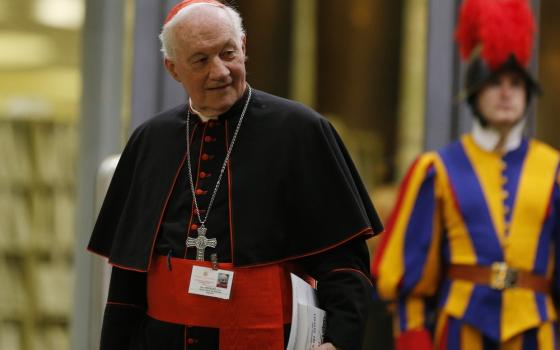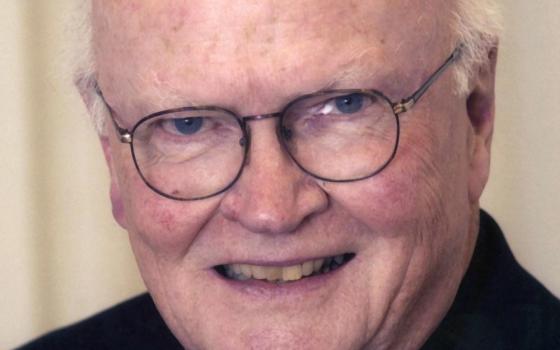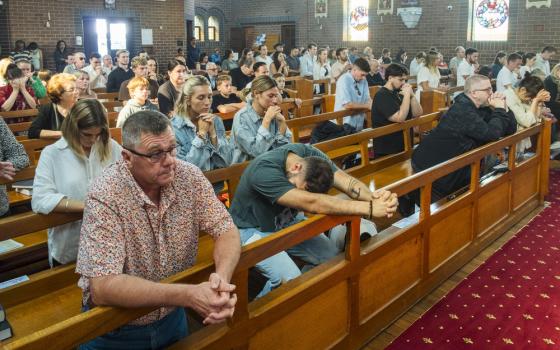If you are looking for something to focus your prayer as you enter into Holy Week or to contemplate the Paschal Mystery as Eastertide unfolds, you can do no better than to pick up this little book by Fr. Robert Imbelli: Rekindling the Christic Imagination: Theological Meditations for the New Evangelization. I say "little book" because it is only 101 pages, but that is not to say it is a thin volume. It is jam-packed with insight drawn from a variety of sources -- theological, literary, artistic -- all of which amount, as great theology must, to an invitation to deepen our relationship with Christ.
Imbelli opens his book by bringing Charles Taylor, the Canadian philosopher, into dialogue with Pope Emeritus Benedict XVI. Imbelli neatly summarizes Taylor's critique of contemporary secularism (after noting the many things about modernity that Taylor celebrates):
Among these is rampant individualism; its promotion of the "buffered" self, allergic to relational entanglements and commitments. A further symptom of secularity's malaise is its apparent rejection of any transcendent reference, its practical atheism that risks confining humanity in a one-dimensional world. Very often a frantic consumerism strives to fill the void left by this absence of an enlivening transcendence. Its mantra seems to be: "I buy, therefore I am."
I lack Imbelli's erudition, but sentences like those make me discern a kindred spirit. And, as Imbelli notes, Taylor is not all gloom and doom. There is an alternate path. Recalling Karl Rahner's famous line that "the devout Christian of the future will either be a 'mystic,' one who has 'experienced' something, or he will cease to be anything at all," Imbelli brings Taylor and Benedict into discussion and identifies four areas in which their thought converges.
The first of the points of convergence is a point well known to regular readers of this column. "First, both concur that Christianity cannot be reduced to moralism, but that it opens upon an apprehension of transcendent reality." For both men, "experience" is not mere subjectivism, but relational and profoundly so. "Second, the heart of that vision is the incarnation of God in Jesus Christ." Both Taylor and Benedict asked: What does the Incarnation mean? And as Imbelli writes, "I think it is right to say that the whole of Pope Benedict's pastoral-theological program was an intense effort to recover, for contemporary men and women, 'a sense of what the Incarnation can mean.'" Imbelli closes the paragraph, as he closes many paragraphs, with a literary illusion: "T.S. Eliot, in a memorable verse, reminds us that incarnation is 'the hint half guessed, the gift half understood.' " Imbelli points out that whatever else happened at the Second Vatican Council, the four principal documents, or constitutions, to issue from that council were "Christologically charged, fresh realizations and celebrations of the church's Lord and the world's Savior."
The third theme Imbelli detects as common in Taylor and Benedict is transformation. Taylor titled the last chapter of his book A Secular Age "Conversions." Taylor used the word "excarnation" to describe our human situation, what Imbelli describes as our "almost congenital propensity to self-centeredness and self-deception. Causes, perhaps worthy in themselves, too easily become absolutized and opponents turned into enemies. Hostility and violence frequently follow in their wake." He further notes, chillingly but accurately, "Death avoidance can become a whole program of life, both for an individual and for a culture. What makes this dis-ease before death particularly malevolent is that it can so easily transmute into scapegoating and death dealing. The Bible's placement of the episode of Cain and Abel at the beginnings of the human story has proved tragically prescient of the history the fallowed -- down to our own day." It is in the face of these various expressions of "excarnation" that both Taylor and Benedict remind us that we must be converted, or, as Benedict wrote, "the liberation of man consists in his being freed from himself and, in relinquishing himself, truly finding himself ... Such a philosophy of freedom and love is, at the same time, a philosophy of conversion, of going out from oneself, of transformation; it is, therefore, also a philosophy of community and history." It is observations like those which made Imbelli, and me, such a fan of Benedict.
The final theme is that of communion. Imbelli notes that "in presenting witnesses who have broken out of modernity's immanentist confinement, Taylor accords a special place to the French poet and thinker Charles Peguy." One of Peguy's central insights was that "the spiritual is always incarnate" and that the individual Christian always stands amidst a "chain of witnesses extending through the centuries: tradition in is most living form." Here is "communion" -- incarnate, the unity of believers founded upon their unity with Christ. Imbelli then finds and shares an early 1961 essay by a young Joseph Raztinger in which we read:
Following Christ ... demands over and over again the personal risk of searching for him, of walking with him, but at the same time it means ceasing to build a wall around oneself, giving oneself over into the unity of "the whole Christ," the totus Christus, as Augustine beautifully puts it.
The experience of Christ is never, for Ratzinger, as it is for the televangelist, about "me and Jesus." In our prayer, especially our liturgical prayer, it is "we" who pray, the Church, the whole Christ, head and members. Indeed, as Imbelli notes, for Ratzinger the third and fourth themes -- conversion and communion -- are impossible to separate. He quotes from Benedict's encyclical Spe Salvi:
Our hope is always essentially also hope for others; only thus is it truly hope for me too. As Christians we should never limit ourselves to asking: how can I save myself? We should also ask: what can I do in order that others may be saved and that for them too the star of hope may rise? Then I will have done my utmost for my own personal salvation as well.
The quote points to the relationship of these theological points of convergence on the theme of the new evangelization. Evangelization, sharing the hope we have in Christ Jesus, is not an add-on, something to which Christians attend once they have mastered the art of moral theology. Evangelization, sharing the good news, is intrinsic to the Christian life.
I said this was not a thin book. Indeed, there is much food for thought, spiritual food, here: So far, we have not gotten past the introduction! These four points of convergence between Taylor and Benedict set the stage, as it were, on which Imbelli will construct his four mystagogical reflections, all with the idea of rescuing the Christian faith from the "social imagery," as Taylor termed it, of a secular age, and rekindling a Christic imagination. As we shall see tomorrow, Imbelli believes that it is as much in the school of the poets and the sculptors and the painters and the musicians that we rekindle our imaginations, not in theology class. It is among the artists that Imbelli believes we will be tutored to express "the dearest freshness deep down things," as Gerard Manley Hopkins wrote.




